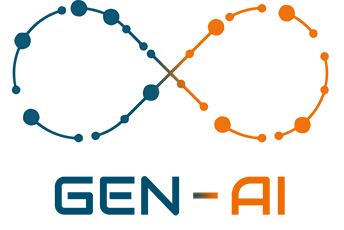Logistics and Transportation Industry
Introduction
The API /virtualbot/extract_from_audio/ offers efficient solutions for the Logistics and Transportation Industry, allowing for the analysis of audio recordings from drivers and carriers. By extracting delivery data, details of transported materials, and the weight of the load directly from submitted audios, companies can digitize documentation processes and improve operational efficiency.
Usage:
– Analysis of audio recordings from drivers and carriers.
– Extraction of key data such as delivery number, details of transported materials, and load weight.
Benefits:
– Digitization of documentation processes, such as automatic generation of delivery or load reception reports.
– Reduction of errors associated with manual data entry.
– Improvement in operational efficiency and real-time visibility of logistics operations.
How the API /virtualbot/extract_from_audio Works
Endpoint: POST /virtualbot/extract_from_audio
Input Parameters:
– Audio file: Can be in MP3 format or other standard audio formats.
– Instructions or Requirements: Specifications on what should be extracted or analyzed from the audio, such as specific information, sentiments, summaries, etc.
Output:
– A JSON containing the results of the analysis, tailored to the user’s requested requirements.
Example Request:
– Input audio: The audio contains the phrase: “I have completed delivery number 456789, the material delivered was cement, total weight of 15 tons.”
– Requirement: Extract the delivery number, material, and weight.
Example JSON Response:
{
"delivery_number": "456789",
"material": "cement",
"weight": "15 tons"
}
Applications in the Logistics and Transportation Industry
- Digitization of Documentation Processes
– Description: Drivers and carriers can send audio recordings after completing deliveries or picking up loads, reporting details such as delivery number, material, weight, origin, and destination.
– Benefit: Automates report and record generation, reducing the need for paper documentation and minimizing human errors.
- Real-Time Tracking
– Description: By processing submitted audios, companies gain updated information on the status of deliveries, delays, incidents, or changes in routes.
– Benefit: Improves visibility of the supply chain and allows for quick responses to unforeseen events.
- Inventory and Warehouse Management
– Description: Warehouse personnel can record the quantities of materials received or dispatched via audio, which are then processed to update inventory systems.
– Benefit: Increases efficiency in inventory management and reduces errors in recording entries and exits.
- Regulatory Compliance and Safety
– Description: The API can extract information about compliance with regulations, such as declarations of hazardous materials transported and safety conditions.
– Benefit: Ensures compliance with transportation regulations and enhances operational safety.
- Analysis of Communications and Incidents
– Description: Analyzes incident reports or internal communications, extracting relevant information for management and problem resolution.
– Benefit: Facilitates early detection of issues and implementation of efficient solutions.
Examples of API Usage in the Logistics and Transportation Industry
Example 1: Report of Completed Deliveries
– Input audio: “I just completed delivery number 789012, I delivered 500 boxes of electronic products to the central warehouse.”
– Requirement: Extract the delivery number, quantity, type of material, and destination.
API Request:
{
"instructions": "Extract delivery number, quantity, delivered material, and destination."
}
API Response:
{
"delivery_number": "789012",
"quantity": "500 boxes",
"material": "electronic products",
"destination": "central warehouse"
}
Example 2: Registration of Collected Load
– Input audio: “I have picked up 200 tons of steel at the industrial plant, my license plate is ABC123, heading to the port for shipping.”
– Requirement: Extract quantity and type of material, pickup location, license plate number, and destination.
API Request:
{
"instructions": "Extract quantity, material, pickup location, license plate number, and destination."
}
API Response:
{
"quantity": "200 tons",
"material": "steel",
"pickup_location": "industrial plant",
"license_plate": "ABC123",
"destination": "port"
}
Example 3: Incident Report on Route
– Input audio: “Due to a road closure, I will arrive late for delivery number 123456. I estimate a delay of 2 hours.”
– Requirement: Extract affected delivery number and estimated delay time.
API Request:
{
"instructions": "Extract delivery number and estimated delay."
}
API Response:
{
"delivery_number": "123456",
"estimated_delay": "2 hours"
}
Advantages of Using the API in the Logistics and Transportation Industry
- Digitization and Automation
– Description: Transforms manual processes into digital ones, allowing for more efficient management and reducing paper use.
– Benefit: Improves operational efficiency and reduces costs associated with administrative tasks.
- Reduction of Errors
– Description: Minimizes human errors in data transcription and recording.
– Benefit: Increases accuracy in information management and avoids issues arising from incorrect data.
- Real-Time Information
– Description: Provides immediate updates on the status of logistics operations.
– Benefit: Allows for better decision-making and quicker responses to unexpected situations.
- Integration with Existing Systems
– Description: The extracted data can be integrated with transportation management systems (TMS) and warehouse management systems (WMS).
– Benefit: Facilitates information synchronization and optimizes the supply chain.
- Improvement in Communication
– Description: Facilitates communication between drivers, carriers, and the operations team.
– Benefit: Ensures that key information is shared effectively and promptly.
- Regulatory Compliance
– Description: Helps ensure compliance with regulations related to the transportation of materials and road safety.
– Benefit: Avoids legal penalties and improves the company’s reputation in terms of compliance and responsibility.
Summary
The API /virtualbot/extract_from_audio is a valuable tool for the Logistics and Transportation Industry, enabling companies to digitize and automate documentation and communication processes. By extracting key information from audios submitted by drivers and carriers, companies can improve operational efficiency, reduce errors, ensure regulatory compliance, and gain greater visibility into their operations in real-time. This translates into better supply chain management, customer satisfaction, and significant competitive advantages in the market.


